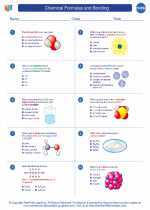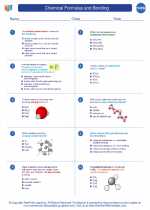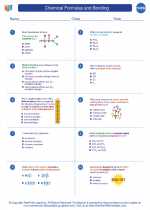Purity in Chemistry
In chemistry, purity refers to the degree to which a substance is free from impurities. Pure substances are important in chemistry because they allow for accurate and reproducible measurements and experiments. Impurities can affect the physical and chemical properties of a substance, as well as its behavior in reactions.
Types of Purity
There are two main types of purity:
- Absolute Purity: Absolute purity refers to the complete absence of impurities in a substance. This is rarely achieved in practice, but it is the ideal standard for pure substances.
- Relative Purity: Relative purity refers to the percentage of the substance that is the desired compound, as opposed to impurities. This is more commonly encountered in real-world samples.
Methods of Assessing Purity
Chemists use a variety of methods to assess the purity of a substance:
- Melting Point/Freezing Point: Pure substances have a sharp and defined melting or freezing point. Impurities can cause the melting or freezing point to be depressed or the range over which melting occurs to widen.
- Boiling Point: Like melting points, pure substances have a sharp and defined boiling point. Impurities can cause the boiling point to be elevated and the range over which boiling occurs to widen.
- Chromatography: This technique separates substances based on their different affinities for a stationary phase and a mobile phase. Impurities can be identified by their different retention times compared to the pure substance.
- Spectroscopy: Spectroscopic techniques, such as UV-Vis or IR spectroscopy, can be used to analyze the absorption or emission of light by a substance, which can reveal the presence of impurities.
- Quantitative Analysis: Techniques such as titration or gravimetric analysis can be used to determine the amount of impurities in a sample.
Importance of Purity
Purity is crucial in many areas of chemistry:
- Research and Development: To ensure that the properties of a substance are accurately studied and understood.
- Pharmaceuticals: Impure drugs can have unexpected side effects or inconsistent therapeutic effects.
- Materials Science: The properties of materials are highly dependent on their purity, especially in industries such as electronics and semiconductors.
- Environmental Analysis: To accurately measure the concentration of pollutants or contaminants in air, water, and soil.
Study Guide
To understand the concept of purity in chemistry, consider the following study guide:
- Define the terms "absolute purity" and "relative purity" and provide examples of each.
- Explain the significance of sharp melting and boiling points in determining the purity of a substance.
- Compare and contrast the techniques of chromatography and spectroscopy in assessing the purity of a substance.
- Discuss the importance of purity in the pharmaceutical industry and provide examples of how impurities can impact drug efficacy.
- Research and report on a real-world example where the purity of a substance has significant implications in industry or research.
[Purity] Related Worksheets and Study Guides:
.◂Chemistry Worksheets and Study Guides High School. Chemical Formulas and Bonding
Worksheet/Answer key Chemical Formulas and Bonding
Chemical Formulas and Bonding  Worksheet/Answer key
Worksheet/Answer key Chemical Formulas and Bonding
Chemical Formulas and Bonding  Worksheet/Answer key
Worksheet/Answer key Chemical Formulas and Bonding
Chemical Formulas and Bonding 

 Worksheet/Answer key
Worksheet/Answer key
 Worksheet/Answer key
Worksheet/Answer key

The resources above cover the following skills:
PHYSICAL SCIENCE (NGSS)
Matter and Its Interactions
Students who demonstrate understanding can:
Plan and conduct an investigation to gather evidence to compare the structure of substances at the bulk scale to infer the strength of electrical forces between particles.